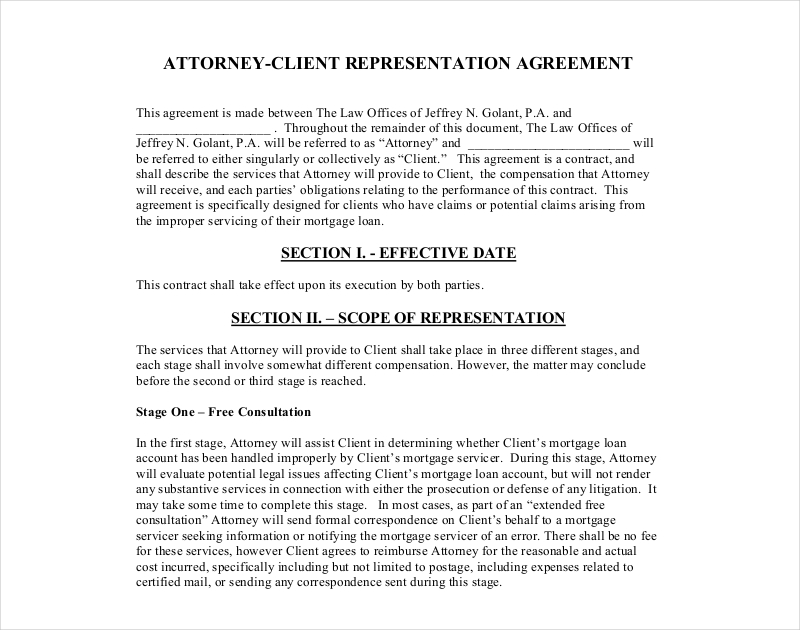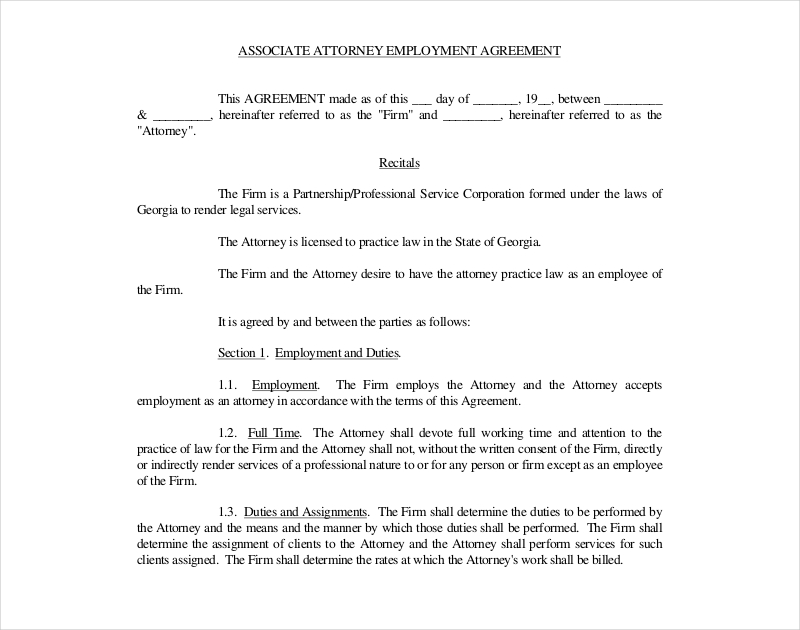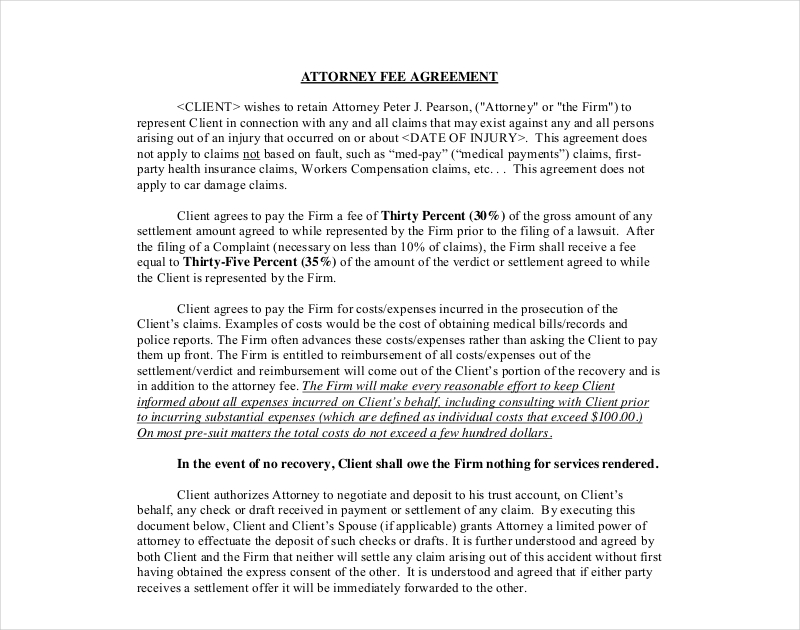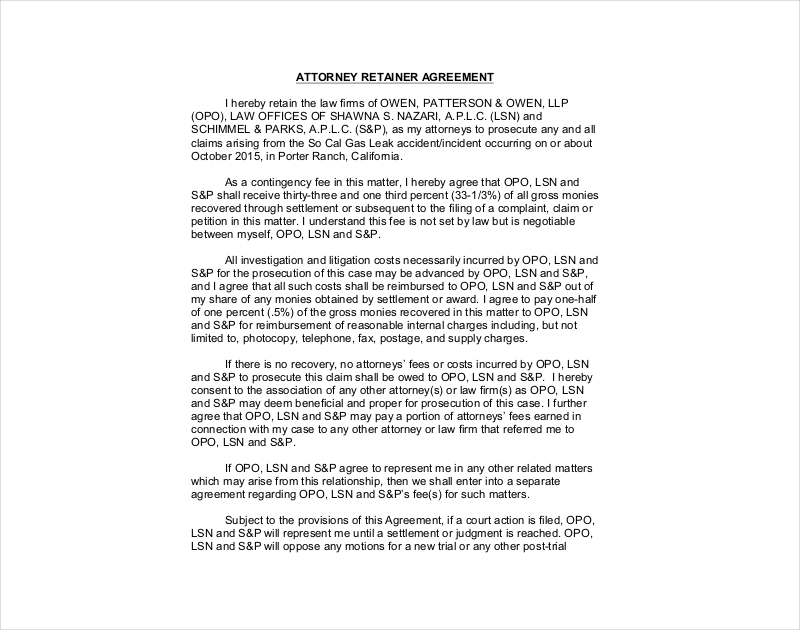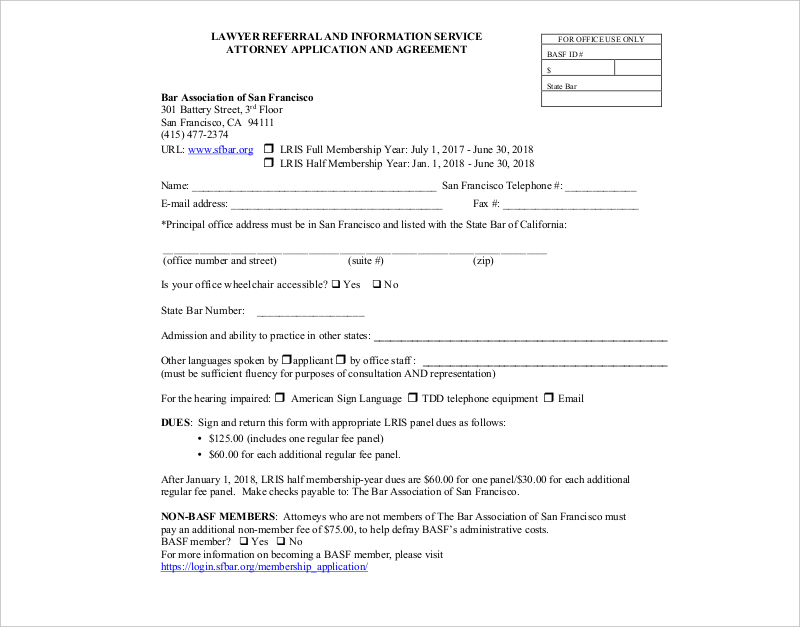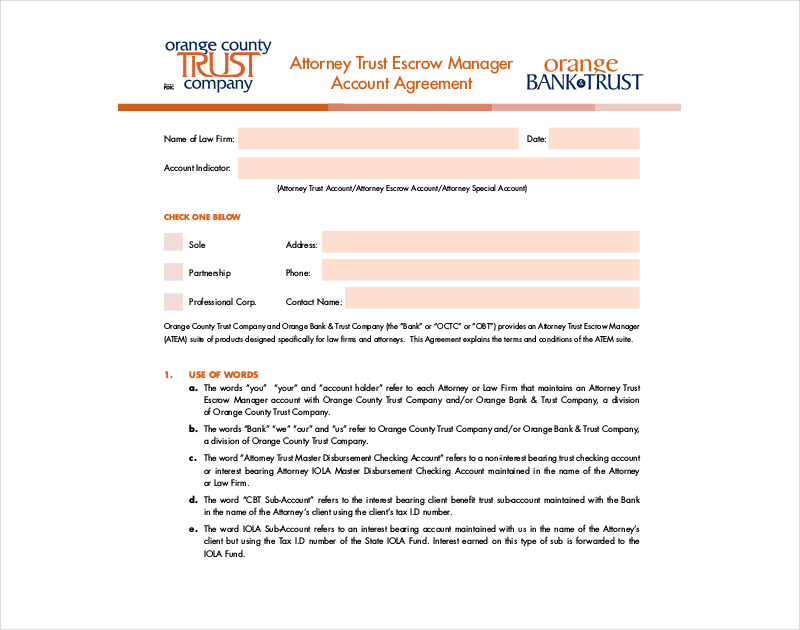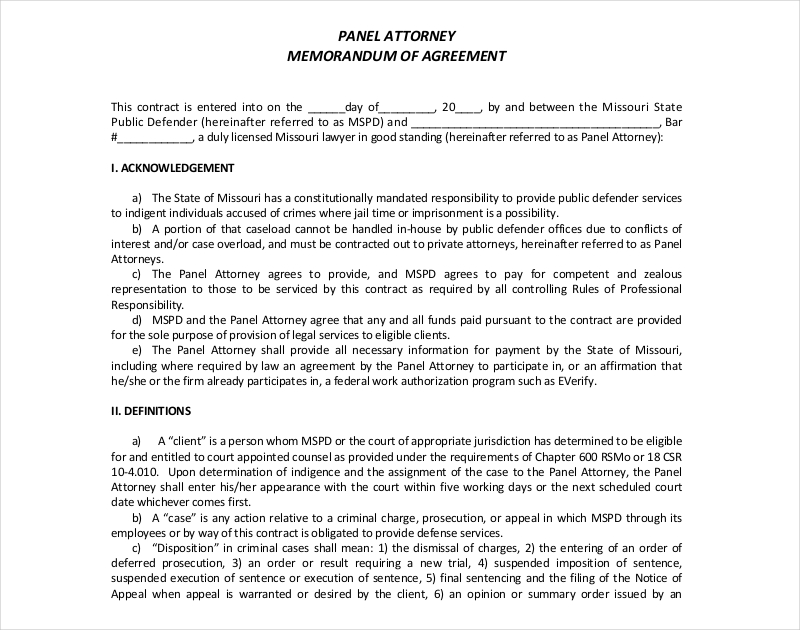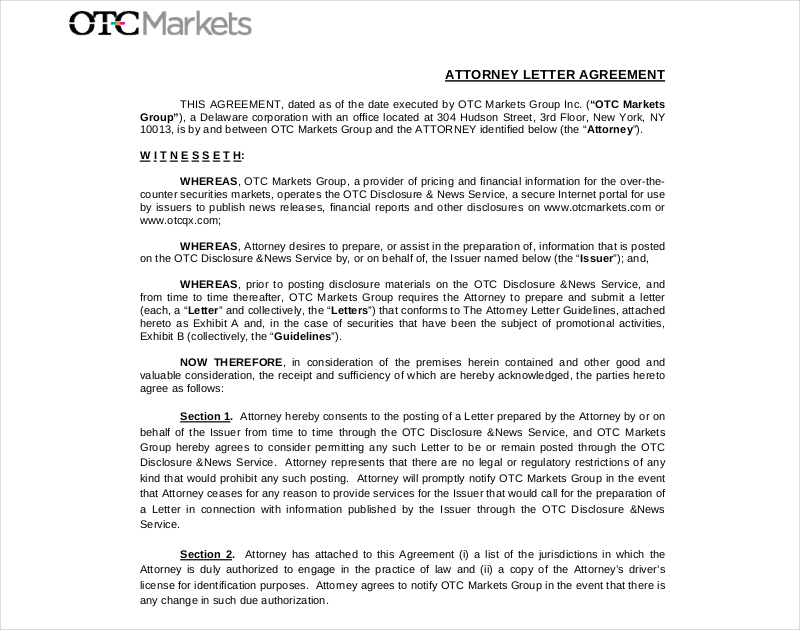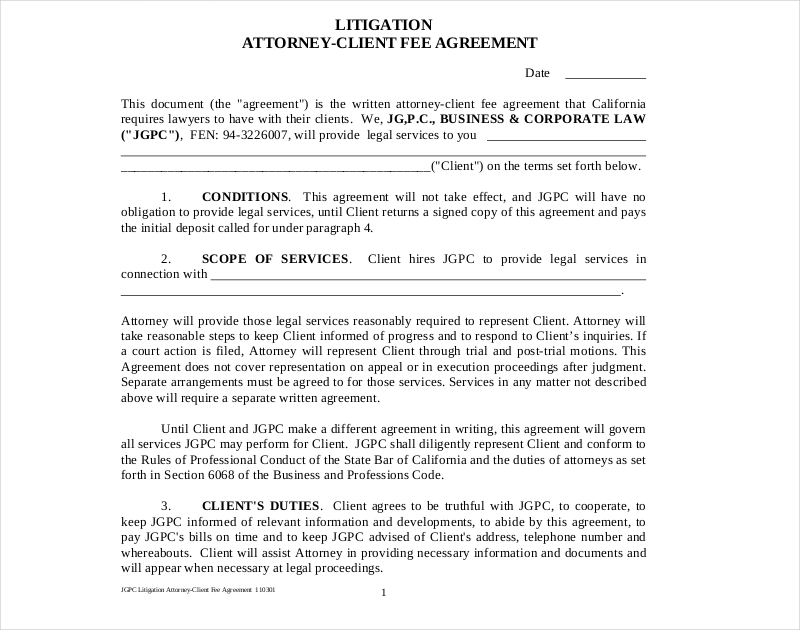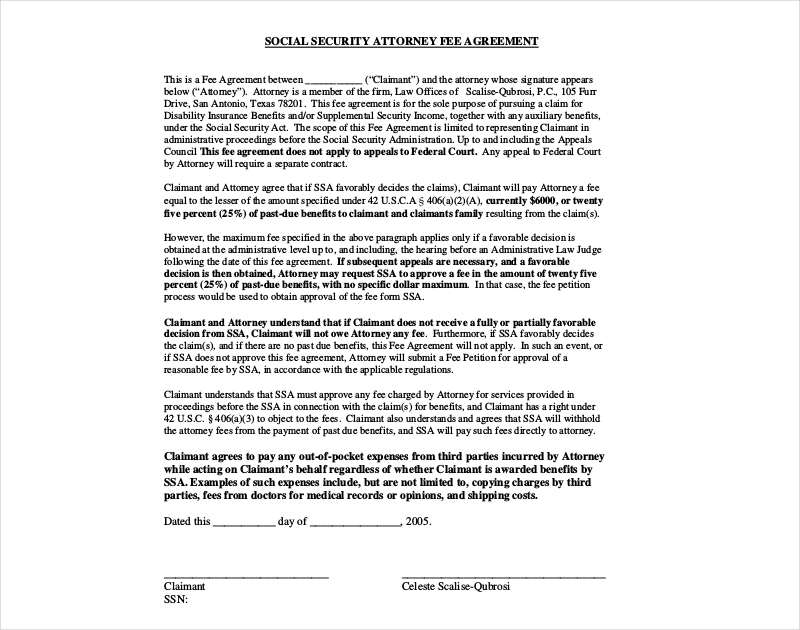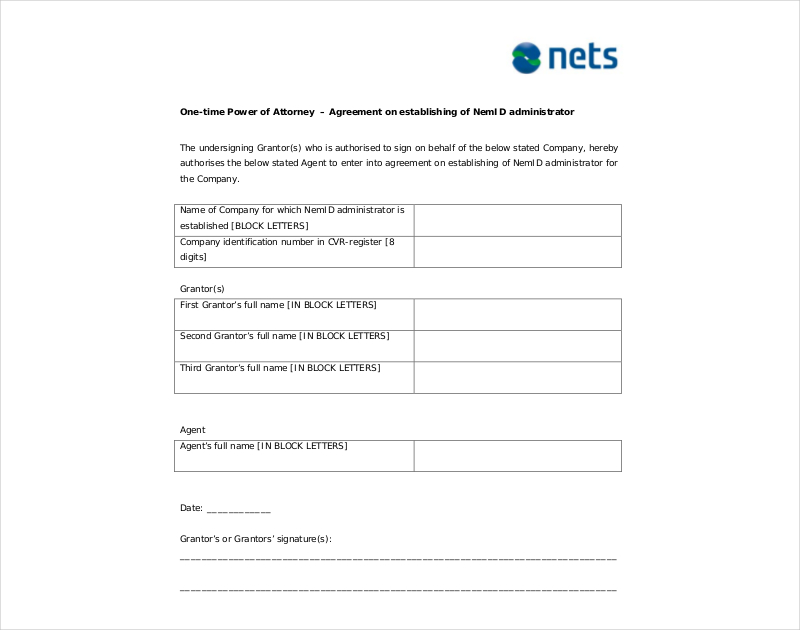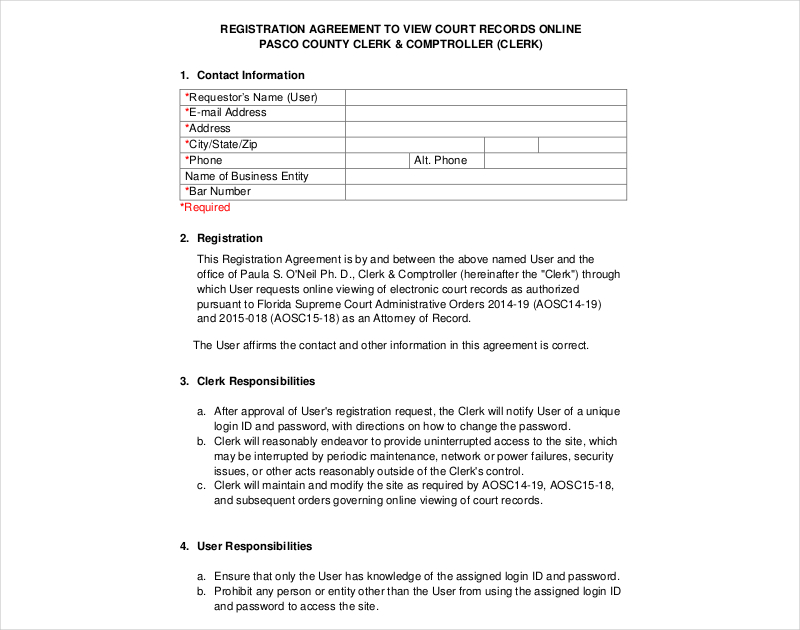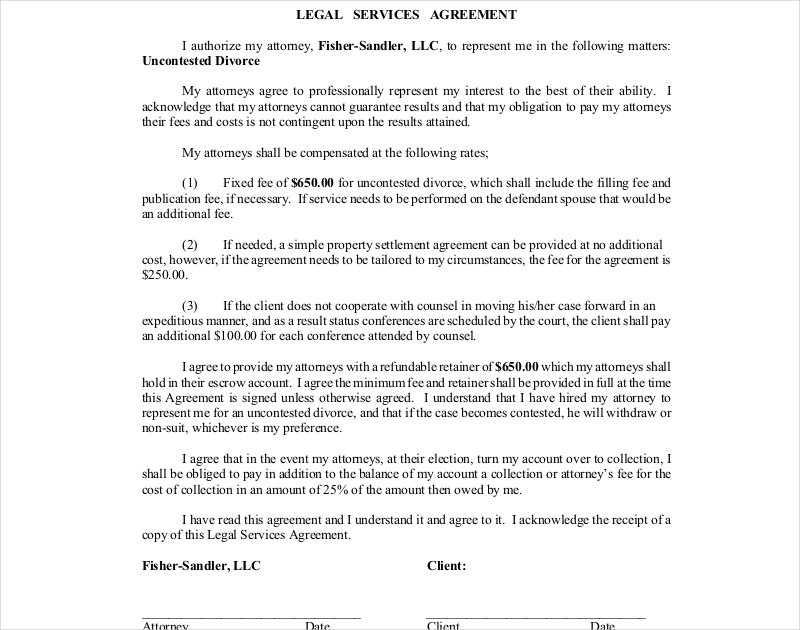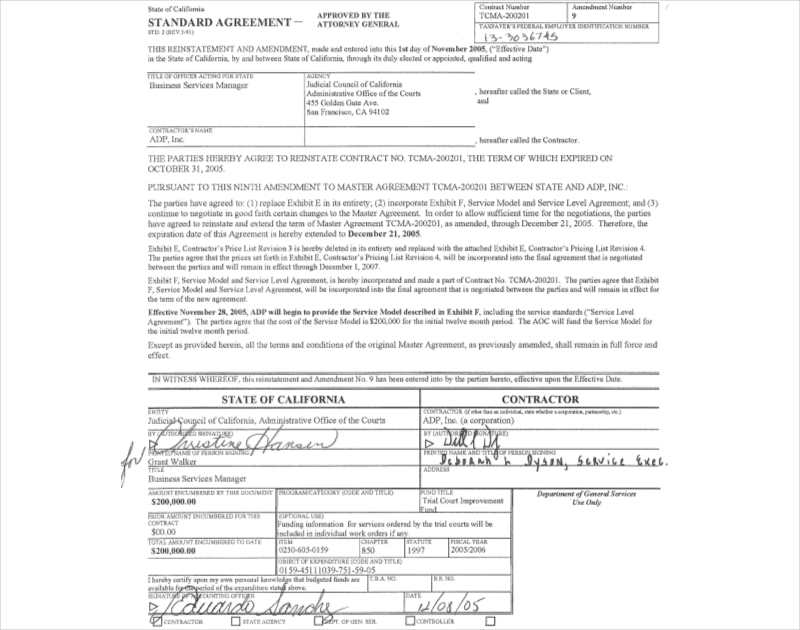14+ Attorney Agreement Examples
Whenever you have to make a document which discusses what needs to be agreed to by certain parties before any business can take place, then that would mean the creation of an agreement form. You can look up commercial agreement examples to give you an idea in terms of how to make them, but you’ll also need to think about what kind of agreement form best suits the situation.
For example, you’ll want to create management agreements to ensure that management in a particular company understands what has to be done in order for the business to be properly managed. So let’s say that you want to set the terms of how you and an attorney will do business with each other, that would mean the creation of an attorney agreement and this article will teach you how to make one.
Attorney Client Representation Agreement
Attorney Employment Agreement
Attorney Fee Agreement
Reasons to Have an Attorney Agreement
The simple reason to have a written agreement with your attorney is to make sure that the parties involved understand what is going to happen. It’s pretty much like knowing what kind of maintenance has to be done through a maintenance agreement or how the payment is going to take place via a payment agreement.
The usual disputes that arise between an attorney and a client revolve around money. And when it comes to money, you know how people always feel if they happen to lose much more than they should. So whether it is how much the attorney is owed, or how much the client is owed as a refund, there’s always going to be that problem. In order to resolve these disputes quickly and without the need for court intervention, that clears up these issues so that both parties will have a general understanding of how everything will take place. It is highly effective to be able point to a specific part of a written contract so that you can prove whatever point you have when it’s necessary to do so.You may also see subscription agreement
There are other reasons (unrelated to money) to have a written representation agreement. For example, if you’re the type who would only employ legal attorneys and not paralegals, then you can state this in the agreement. These representation agreements are also a great way of laying out how the client wants his relationship with his attorney to work. For example, there may be clients who would like to receive weekly updates from their attorney regarding what’s happening. All you have to do is simply state in agreement that it must be done so that the attorney will have no choice but to do so.You may also see purchase agreement
Finally, putting the agreement in writing forces both client and attorney to be very clear about what is expected form one another. It’s like when a subordination agreement makes it clear as to how one is expected to lay claim to another party.
Oral representation agreements may be subject to different interpretations, depending on which side makes it. However, a written representation agreement makes both attorney and client explicitly aware of what has specific terms have to be agreed to and leave out any confusion.You may also see conveyance agreement
Attorney Services Agreement
Attorney Retainer Agreement
Attorney Application and Agreement
Attorney Manager Account Agreement
2. What Should be in Your Attorney Agreement
Much like a direct deposit agreement or even a license agreement, an attorney agreement should contain certain pieces of information that will tell both the attorney and the client the terms of what has to be agreed to.
So here are the things that you will need to include in the document:
3. Hourly Fees
For many types of cases, this is the most common way in which every attorney is going to be paid. Just like paying an hourly employee, clients will be expected to pay their attorneys by the hour, or part of hour, that the attorney will be working on the case. There’s usually a standard rate as to how much should be charged by the hour, so the best way to make sure that the attorney is properly compensated is by checking the standard payment in your country.You may also see loan agreement
4. Fixed Fee
If you were to set a Purchase Agreement, then the prices of the the products that is to be sold to the buyer are always fixed. So when you’re dealing with an attorney, there’s a chance that he or she may already have a fixed rate on the service that will be provided. Under this fee structure, an attorney will charge a client a fixed amount depending on the kind of services that will be provided and the case that will be worked on. This is generally used by attorneys that do one type of case or transaction multiple times. Much like the hourly fees, be sure that you check the standard fixed fees within your country to ensure that the client is not overpaying for the services.You may also see lease agreement
Panel Attorney Memorandum Agreement
Attorney Letter Agreement
Litigation Attorney Agreement
Social Security Attorney Agreement
One Time Power of Attorney Agreement
Attorney Record Registration Agreement
Legal Service Attorney Agreement
Standard Attorney Agreement
5. Contingency Fee
This type of fee arrangement is often used in personal injury cases. This is great for clients who don’t exactly have a lot of money to their name to pay their attorneys up front. Instead, the attorney agrees to take the case in exchange for a certain percentage for whatever is issued at the end of the representation. So basically, you can state that if the client happens to lose the case, then the attorney doesn’t get paid. It’s kind of a fair way to ensure that both parties have no problems in dealing with payment and compensation, but it’s all up to whether or not the attorney agrees to this.You may also see business agreement
6. The Extent of the Representation
The contract should make clear how far your attorney will be able to represent you in your case. So you can state that the attorney will not handle the appeal in your case and that he or she may be in charge of all other aspects. Just be sure that you write clearly as to what the attorney can and cannot do when it comes to taking on your case.You may also see sales agency agreement
7. Ending the Attorney-Client Relationship
The representation agreement should include a term regarding the ending of the relationship and how it can be terminated. It’s pretty much like a settlement agreement where things such as how the charges will be dropped and how the settlement will end between both parties. You can state in the agreement that the client has every right to fire the attorney for any reason or that the client may only legally fire the attorney if there is a just cause. If it’s the latter, then you’ll need to clearly define what these just causes are so that there will be no room for confusion.
And lastly, the agreement will need to specify who is in charge of doing the work, conducting research for the case, and who will argue it in court if litigation is necessary. Once all that has been determined, the last step is to have the names and signatures of both the client and the attorney placed at the bottom of the document to show that the two have made their temporary relationship official.You may also see personal care agreements
If you would like to learn how to create other types of agreement documents (non-disclosure agreement , work for hire agreement, etc.), then all you have to do is go through our site. Here, you will be able to find all the articles that should contain the information that can help you out. The only thing that you have to do on your end is read them thoroughly so that you can fully utilize whatever it is that you have gathered.



